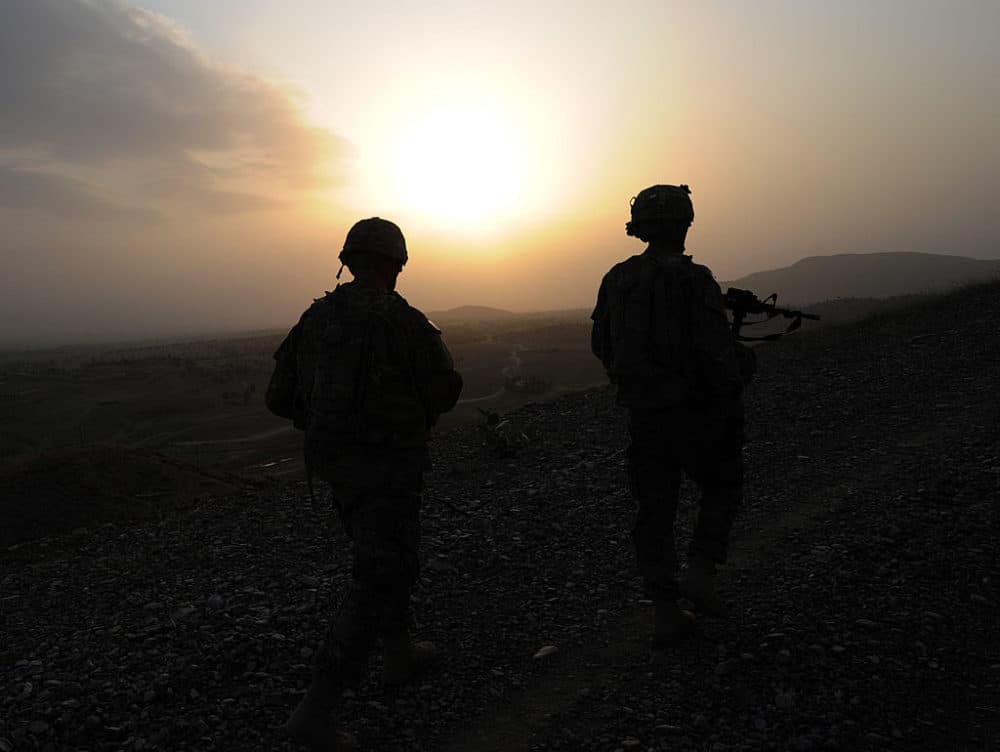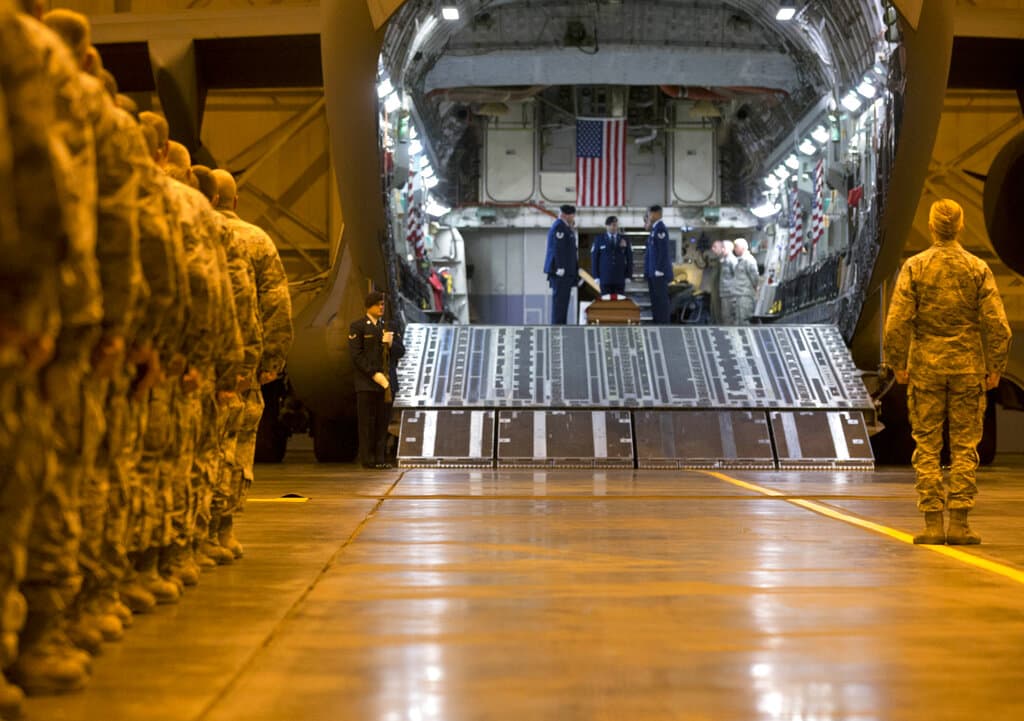Advertisement
Commentary
Ending The 'Forever War' In Afghanistan Is Only The First Step

Those of us of the right age remember with perfect clarity the weather on September 11, 2001, a dazzlingly beautiful day. The unblemished blue sky over southern New England stretched for 200 miles to the southwest, serving as a backdrop to the micro-apocalypse in Manhattan that was broadcast directly into my geometry classroom.
At 14, I was just a couple of weeks into my freshman year of high school. My peers and I were awash in the vagaries of adolescence -- ill-equipped to discuss moments of historical gravity. We mostly stood in silence waiting for the bus that day.
In his 2020 semi-autobiographical novel, “Inside Story,” Martin Amis writes of 9/11: “An act of terrorism fills the mind as thoroughly as a triggered airbag smothers a driver.” And thus it was that the specter of terrorism consumed our collective mind, driving us to war in Afghanistan, with the aim of holding those who orchestrated the attacks accountable, and a parallel, unprovoked invasion of Iraq in search of non-existent weapons of mass destruction — a coalition of the willingly irrational careening wildly through the cradle of civilization.
When I got to Afghanistan as a junior officer assigned to the coalition’s counter-improvised explosive device task force, the war had entered its 12th year. Osama Bin Laden had been killed nearly a year earlier, and it was evident to me within weeks of arriving in theater that, outside of filling the pockets of defense companies, our strategy in the country was accomplishing little.
The trauma of war is something of a positive feedback loop, a perpetual-motion machine of suffering.
Our support programs for the Afghan forces provided them with expensive equipment like bomb disposal robots that they had neither the physical means nor technical expertise to maintain. Coalition personnel assigned to training their Afghan colleagues often died at the hands of their students in so-called insider attacks.
The trauma of war is something of a positive feedback loop, a perpetual-motion machine of suffering. I was present for meetings of fellow public affairs officers as we discussed how to address the “messaging challenge” presented by Staff Sgt. Robert Bales’ murder of 16 Afghan civilians, mostly children. Bales was a decorated veteran of four combat tours and a father of two. He was suffering from post-traumatic stress disorder and a traumatic brain injury, that his defense attorneys argue contributed to his early-morning rampage in Kandahar province.
Who is to say how many other atrocities Bales’ seeded, how many young Afghan men were driven into the arms of the Taliban by his act? In our professional capacity, we saw the massacre as a barrier to winning hearts and minds. We should have seen it as further evidence of the war’s pointless cruelty.
President Biden announced this week that his administration would withdraw all troops from Afghanistan by September 11 of this year — the 20th anniversary of the war’s start. For those of us who have advocated for ending the war, it is welcome news, if long overdue.
But ending active military operations in Afghanistan should only be the first step in coming to terms with the past two decades of disastrous American foreign policy. Congress must act to reclaim its war powers and repeal the Authorization for Use of Military Force. For as long as our legislators fail to reassert their authority, there is nothing to stop an overzealous executive from unilaterally embroiling the U.S. in another foreign adventure.
Further, understanding the factors that brought us nearly a quarter century of quagmire should be a priority for our leaders. The Biden administration should create a commission to investigate the years of decision-making that resulted in the perpetuation of a conflict with no clear endgame. The “forever war” is a truly bipartisan sin and, in that spirit, this commission should include representation from both sides of the aisle. If we refuse to learn from this era of our history, then the lives and treasure expended will be truly wasted.
We need a cultural revolution in the way we think about individual Americans’ responsibility to those who serve
A generation of American service members has never known peacetime. Years of multiple deployments have widened the gap between a praetorian class of professional warriors and a civilian population largely insulated from the consequences of war. Political leaders and the media reinforce the idea that “supporting the troops” is entirely a matter of ceremony: heckle the football player who takes a knee during the national anthem; give a standing ovation for the uniformed Marine who gets a Zamboni ride between periods at a hockey game.
Most Americans rarely consider their civic obligations to those who serve. That’s one thing. But holding elected leaders accountable for being judicious with the lives of soldiers, sailors, airmen and Marines, and advocating for their adequate health care and housing are far greater acts of “support” than purchasing a bumper sticker or putting a flag on your front porch. We need a cultural revolution in the way we think about individual Americans’ responsibility to those who serve, and the end of our time in Afghanistan presents the ideal opportunity for this reassessment.

When the bodies of those killed in action were flown back to the U.S. from Bagram Air Base in Afghanistan, we would file out to the flight line and stand in solemn, silent formation, saluting the flag-draped caskets ahead of their final journey to the home country these Americans would never again see. In my nine months there, I could not tell you how many fallen comrades I stood in quiet vigil for, each one representing a family whose world had been destroyed.
There is still much work to be done in reconciling with the cost of our post-9/11 wars, but I for one will sleep better when those planes leaving Afghanistan have stopped for good.
